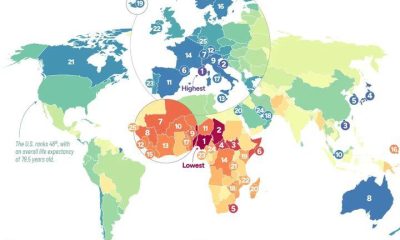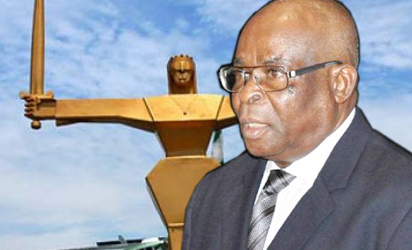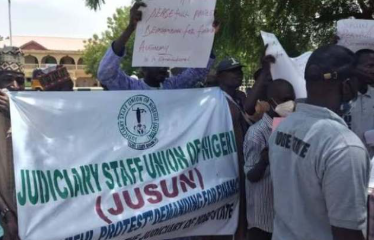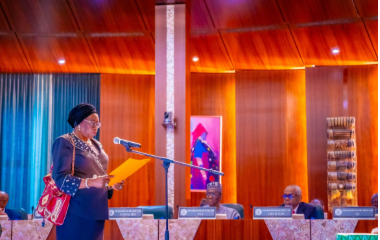Nigeria’s Judicial Council has reinstated judges caught in the dragnet of anti-corruption fight last November. Justice demands it revisits its 2014 slam many consider overkill on a Judge
Eight Justices suspended after a sting operation on allegedly corrupt judges eight months ago resume duty June 7. As their baggage of more than 12 allegations and three trials are now lightened thanks to the discretion of CJN Walter Onnoghen, many observers of Nigeria’s judiciary agree justice means different things to different CJNs.
To former CJN Mukhtar Aloma who also contended with judicial corruption in her tenure, justice can only mean a ruthless clamp down on Judges suspected of corruption on the weakest petitions.
And former Abuja High Court Justice Gladys Kpenikpe Olotu can spot the difference. She was one of the victims of that circumstance in which Mukhtar held sway as Nigeria’s first female CJN. In the same boat as Justice M.N Esowe alleged of delaying judgement, but simply put on a watchlist by CJN Onnoghen now, Olotu, in 2014, got from her boss a sledge hammer—forced retirement after over two decades in judicial service.
ALSO READ: NJC and The Olotu Integrity Test

Two panels by the National Judicial Council were set up in the course of investigating Olotu over four petitions from two House of Reps contestants in 2011, former Gov. Sullivian Chime, Sen. Abubakar Sadiq Yaradua, and others. A company, Ponticelli Nigeria Ltd, in 2011 also wrote against her over a Garnishee order and case transfer from Akwa Ibom to Port Harcourt following her redeployment. The NJC itself, having Muktar in attendance, eventually sat in judgement at its 63rd and 65th meetings to nail her.
The first two panels reported the politicians had nothing against the justice, and that administrative slip-ups, vacation, and oversight were responsible for Olotu delaying judgement twice in 18 months. She was warned and recommended to be sanctioned accordingly.
Other petitions, including Chime’s, the Garnishee order, and case file transfer were dismissed. “The committee holds the view that the Garnishee is an appealable issue,” the report stated. “We therefore recommend she should be exonerated.” And on the issue of abandonment alleged by the company, the panel said “we recommend that His Lordship be exonerated”.
But in spite of the recommendations by the Justice O.A. Bamgbola panel and the second one chaired by Justice O.O, Olapade, Olotu still lost her wig.
The NJC chaired by Mukhtar actually delivered the clincher. It rejected the panels’ findings exonerating Olotu from the Garnishee matter, and other allegations. Even while three of the members prayed the Council to temper justice with mercy, and consider the meritorious service the judge had put in over the years, the chairman kicked. “The issue for consideration was mot that of elevation to a higher bench,” Mukhtar was quoted as saying. She believed it was a no-no for a judge to delay judgement beyond three months—when section 294, subsections 1, 5, and 6 of the 1999 Constitution actually envisage such delays. And the Appeal Court takes care of that—not the NJC.
Again, hammering Olotu with forced retirement has no legal backing, according to legal experts. Notwithstanding, a letter was sent to former President Goodluck Jonathan, informing him of the council decision.
Three years after, history repeated itself like some drama. But the climax, for the likes of Justices Adeniyi Ademola, N. S. Ngwuta, CFR, , Rita Ofili-Ajumogobia, and others alleged and charged with corruption, may not be tragic.
They may have got justice –in eight months.
But Olotu still waits.

 Comments and Issues1 week ago
Comments and Issues1 week ago
 Latest1 week ago
Latest1 week ago
 Uncategorized6 days ago
Uncategorized6 days ago
 Labour1 week ago
Labour1 week ago
 Business6 days ago
Business6 days ago
 Business5 days ago
Business5 days ago
 Latest1 week ago
Latest1 week ago
 Latest4 days ago
Latest4 days ago














